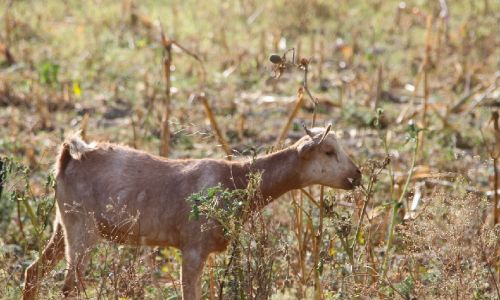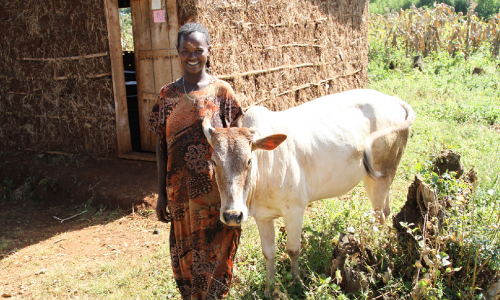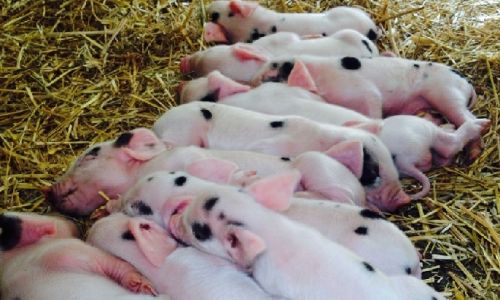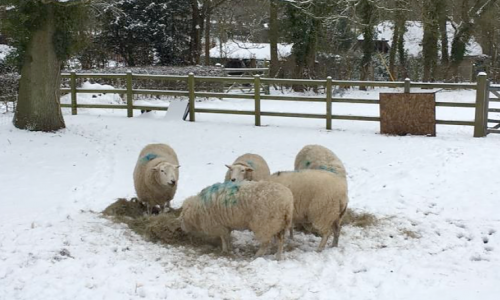A grassroots view of vets & sustainability in farming
Spotlight on meat production
Marie Richardson
Sustainability can not escape anyone's attention today. The spotlight is being shone brightly on agriculture and especially on meat production.
With a high carbon footprint, opinions surrounding nutrition and food security, high resource usage and levels of pollution, the public are asking ‘are our animal products sustainable?’ There are many farmers answering this call. The means by which they tackle this issue are as varied as farmers themselves.
Every farmer is aware of herd health plans to increase vigour through husbandry, reducing antibiotic intervention. Work towards greener food stuff is on the increase and agricultural pollution policy is continually being developed. There are many organisations such as LEAF (Linking Environment And Farming), FAI and SFT (Sustainable Food Trust) who are avidly supporting farmers in their goals toward sustainability. The organic organisations, also, are strong proponents in this field and the often forgotten smallholders who are rising in popularity.
Are vets being left behind?
As vets we have a large role in social advocacy. We are representatives of the sectors we support, and partners of those we serve. We have unique advisory skills and welfare knowledge and yet it seems that we are being left behind as this movement gains momentum. Farmers are installing biogas digesters, experimenting with mob grazing and herbal leys, planting trees, experimenting with low input breeds, and reviewing their feeding and grazing management. But what do they have to say about the veterinary input they receive? Again the answers are as varied as the farmers themselves. Many enjoy a close relationship with their vet and value their support highly but many report that when it comes to sustainability their vets have little to offer, perhaps are even resistant to the subject. Equally, when vets are asked about ideas for sustainability many will report an eagerness to know more but a current position of little knowledge.
Why are we not well informed?
The reasons are not fully understood but potentially include a range of factors. As we all know, vets are busy, busy people. Hectic schedules do not afford the luxury to engage in conversations about these ideas or the time to go and research them. For very valid welfare reasons we are bound to ensure we advise on methods that are evidence-based. Many new techniques and ideas driven by the goal of sustainability, however, do not have a lot of research to support them so far. Dare I even whisper it, but potentially, an inherent resistance in the veterinary industry to herbal medicine may make a small contribution. We have seen some very interesting results with herbal additives to pig feed and interesting findings investigating legumes for ruminants, including their antiparasitic effects. Being lumped into the alternative medicine bracket, however, the subject gets an instant dismissal from many vets. We are left in a tricky position then - without the evidence and research, it is difficult to learn and advise. Conversely, farmers are happy to pursue techniques based on the success of fellow farmers regardless of veterinary advice, so will continue to investigate and experiment with new techniques whether we are engaged or not.
Contributions from vets
With our unique position and skill set, we have a lot to offer. All new techniques have a welfare implication, which we are in the best position to assess and respond to. We are thoroughly trained in herd health assessment and public health, which both require a holistic outlook, an underpinning requirement for incorporating sustainability into farming. We have a unique networking opportunity being in contact with many farms, and a knowledge of scientific analysis. With these skills, vets can support the progress of sustainability within farming, ensuring the highest standard of health can be delivered to the animals under our care whilst we navigate how these new techniques are best applied.
If we do not engage in sustainability we risk a gap forming between our knowledge, and that of our clients. This could potentially lead to our role becoming even more of an emergency response service rather than a service for health advice. I also pose the question here: does this lack of engagement between farmer and vet create a cognitive dissonance for vets? We feel disillusioned that the service we deliver is not necessarily achieving what we would like it to. Is this a factor in vet retention? Potentially engaging more fully in the sustainability movement could help with these issues.
Routes for engagement
As we see with the Vet Sustain launch, the topic of sustainability is huge, but where to start? There is certainly more funding needed in researching techniques, feed alternatives, breeding and so on and so forth. Hopefully in the years to come we will see more educational material available in the practical application of techniques and methods towards sustainability. But until then, what can we do? Well, when we don’t have the tools for what we need, we must look at the tools that we have. We all have an inquisitive mind and an ability to adapt the way we think. We are heavily trained as medical scientists in reductionist methods and reductionist thinking, reducing each phenomena to its parts and tackling one part at a time. When it comes to sustainability, it has been suggested that a shift in thinking toward a more holistic mindset may be useful. In agroecology, for example, the farm is viewed as a whole, one could say as its’ own ecosystem. In this way, the effect the farm has on the community, the farmer, the animals, the fauna and the soil can all be considered. Any intervention may be considered in this light also. To some degree, farmers and vets do this naturally and certainly this way of thinking falls into the remit of the ‘art of veterinary medicine’, but there is definitely an argument that by bringing this thinking to the forefront we can start to engage more fully and start to tackle this difficult subject.
Everyone one of us can make small changes. We can decide to agree that sustainability is important and we can decide to find out more about it. We can decide to be open to new ideas that farmers have and be careful not to dismiss ideas immediately that do not fit with our way of thinking or our knowledge base. We can start a conversation, see what our clients really think about sustainability. For now, we can refer them to useful organisations such as FAI, SFT, LEAF, Pasture For Life and Cotswold Seeds.
And finally, of course, we can keep an eye on Vet Sustain for more information, events and all the latest news.
Created by a group of farm animal, aquaculture and wildlife population health experts
Our Food and Farming working group is supporting the transition towards a more sustainable farming future — including the conservation and regeneration of natural ecosystems, through agriculture.



